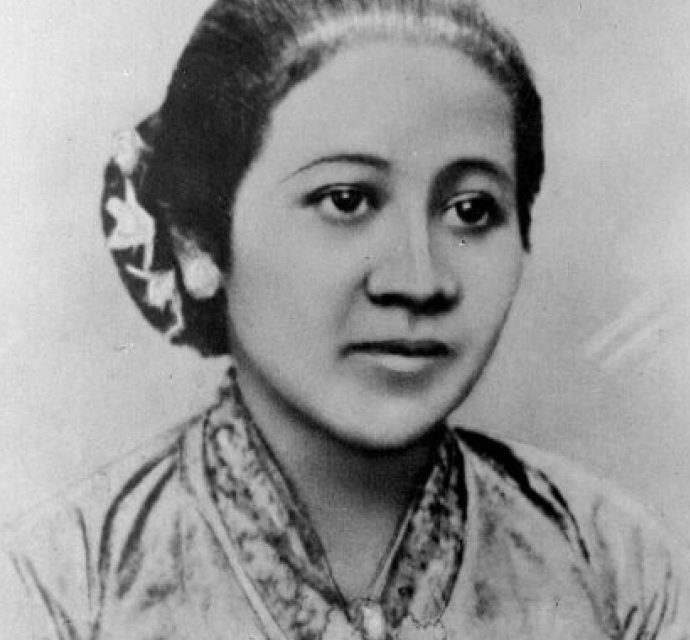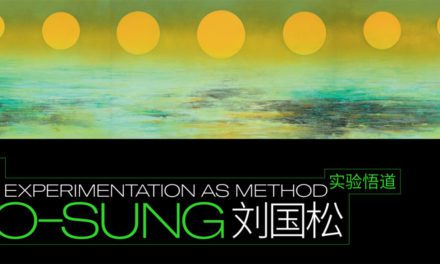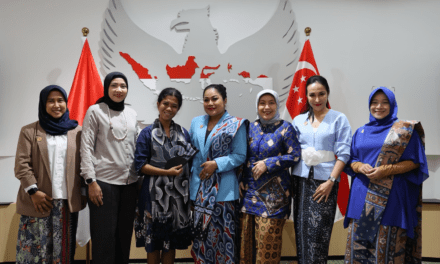 At a time when women were denied the right to education and had to be subservient to male members, the only sane voice echoed from the unexpected corridors of the royal palace of Java. Kartini, a Javanese aristocrat, usually referred to by her title Raden Ajeng Kartini pioneered the women’s right movement in Indonesia. Born during 1879, Kartini who died at the age of 25 is even today remembered and revered across Indonesia as a national heroine and her birthday 21 April is celebrated as Kartini Day.
At a time when women were denied the right to education and had to be subservient to male members, the only sane voice echoed from the unexpected corridors of the royal palace of Java. Kartini, a Javanese aristocrat, usually referred to by her title Raden Ajeng Kartini pioneered the women’s right movement in Indonesia. Born during 1879, Kartini who died at the age of 25 is even today remembered and revered across Indonesia as a national heroine and her birthday 21 April is celebrated as Kartini Day.
Kartini, at a young age dedicated her life to better the conditions of Javanese women, who had low social status, through education. However, she wanted to go beyond women’s empowerment and help the indigenous women to reach their dreams, attain independence from a patriarchal society.
A fifth child and second eldest daughter in a family of eleven, Kartini was born into a family with a strong intellectual tradition and her family allowed her to attend school until she was 12 years old. During her schooling years, Kartini learnt to speak Dutch, a rare accomplishment for Javanese women at the time. However, after 12, she was secluded at home in preparation for marriage, which was a common practice among Javanese aristocracy.
But her seclusion did not stop Kartini as she continued to educate herself on her own. As she could speak and write Dutch fluently, she acquired several Dutch pen friends who she communicated with regularly. Kartini also acquired several books, newspapers and European magazines that opened up her mind to European feminist thinking, and nurtured the desire to improve the conditions of indigenous Indonesian women, who at that time had a very low social status.
…in 1903 she successfully opened the first Indonesian primary school for native girls that did not discriminate on the basis of their social status
Her letters to her Dutch pen pals expressed her views on the status of Javanese women and the obstacle for their development. The letters were later compiled into a book called “Habis Gelap Terbitlah Terang” (“Out of Darkness Into Light”) and published posthumously. In one of her letters, Kartini had written, “I do not respect Javanese men. How could I admire a married man who, if bored with the mother of his children, could bring another woman into his house and marry her legally under Islamic law?”
However, just when Kartini was offered a scholarship to study abroad, her marriage to Regent of Rembang, Raden Adipati Joyodiningrat, who was 26 years older than her, dashed her hopes of accepting it. She was his fourth wife and had protested the marriage before giving in to family pressure.
Intent on women’s development, Kartini did not give up her ambition of educating indigenous women. With her new husband’s approval, she soon set about launching her own school for Javanese girls. She sought help from the Dutch government and in 1903 successfully opened the first Indonesian primary school for native girls that did not discriminate on the basis of their social status. The school was set up inside her father’s home, and taught girls a progressive, Western-based curriculum.
Kartini corresponded with feminist Stella Zeehandelaar as well as several Dutch officials with a plea to further the cause of Javanese women’s emancipation from oppressive laws and native traditions. Her letters also expressed her Javanese nationalist sentiments. But just a year later, on 17 September 1904, at the age of 25, Kartini died in the regency of Rembang, Java, of complications from giving birth to her first child.
One hundred and thirty four years since the birth of Kartini, her liberal ideas still ring true to the ears of Indonesian women today. In 1964, she was declared an Indonesian national heroine by President Sukarno and her birthday was subsequently named Kartini Day, which is celebrated annually. Activists, academics and artists every year read Kartini’s letters to remember her ideas that inspired the women’s emancipation movement in Indonesia.








